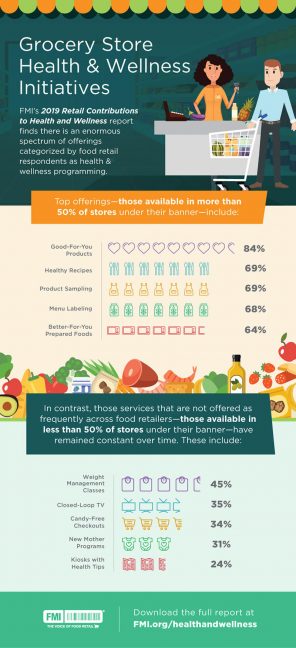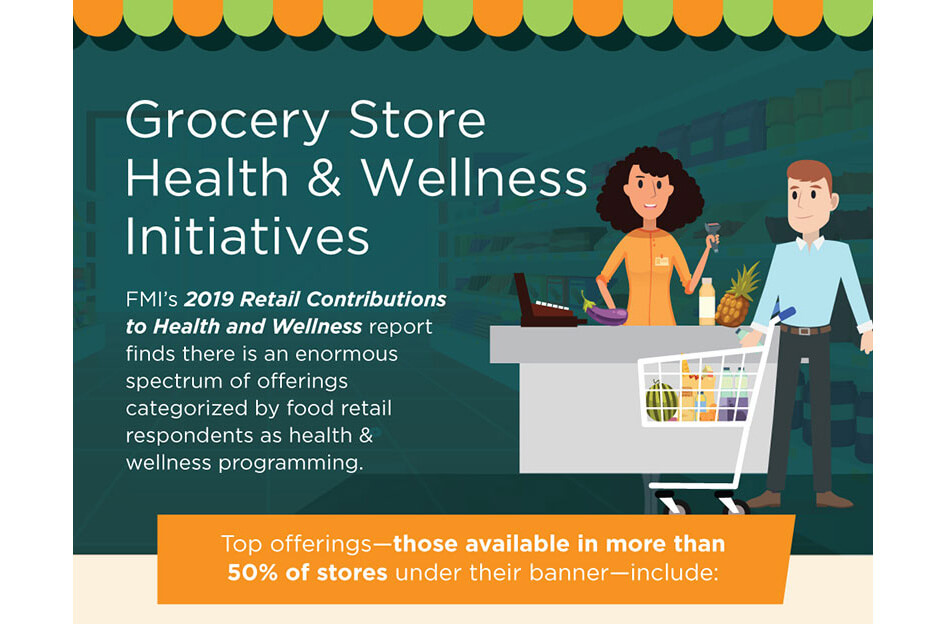FMI released the 2019 Retailer Contributions to Health and Wellness report Dec. 11, finding grocery stores are expanding the health and wellness programs they offer to shoppers. The majority (90 percent) of survey respondents report having an established health and wellness program and about half (49 percent) have programs for both employees and customers. This is an 86 percent increase in health and wellness activity since 2017.
“Overwhelmingly, food retailers see health and wellness programs not only as a business growth opportunity (71 percent), but also as a way to meet consumer expectations (63 percent),” said Hilary Thesmar, PhD, RD, CFS, chief food and product safety officer and SVP food safety at FMI. “Grocers understand their value as both a destination and partner in a shopper’s health and wellness journey. The report finds retailers offer an enormous spectrum of health and wellness programming, especially around activities that provide more shopper experiences and product assortment.”
Health and wellness talent
To ensure a high level of health and wellness offerings, 85 percent of survey respondents report employing registered dietitians. Of those, 70 percent employ these nutrition experts at the corporate level while 27 percent employ them regionally. In addition, one in three grocery stores report having an in-store clinic for shoppers with about half of these clinics owned and operated by a health system organization.
More well-rounded offerings
“The shift in more health and wellness program offerings focused on both ill- and well-oriented services indicates a more well-rounded approach to health and well-being at food retail,” Thesmar said. “Food retailers see value in being known for health and wellness services, and by looking at the top and bottom in-store offerings (see infographic) we begin to form a picture of how food retailers are using health and wellness programs to set themselves apart.”
Omnichannel health and wellness opportunity
The report finds an opportunity for food retailers to better integrate health and wellness programs with omnichannel strategies. According to this year’s survey, 94 percent of retailers who responded offer online shopping, yet only 70 percent extend their health and wellness initiatives to those online shoppers. More shoppable health and wellness content and better program integration offer retailers the chance to further enhance their health and wellness programming.
The survey represented 39 food retail companies and more than 20,000 stores ranging from small to large.
FMI’s Power of Health and Wellness, which looks at consumer trends on health and wellness, will release in January 2020.

